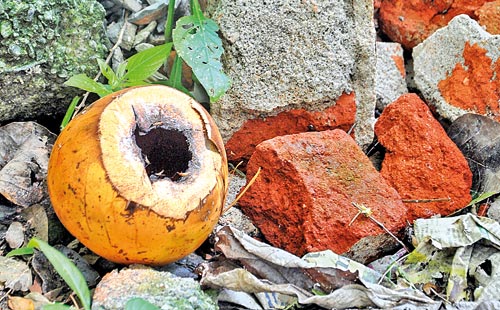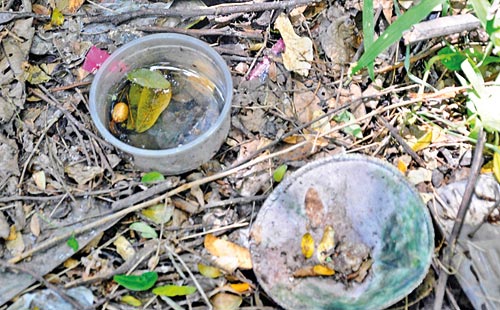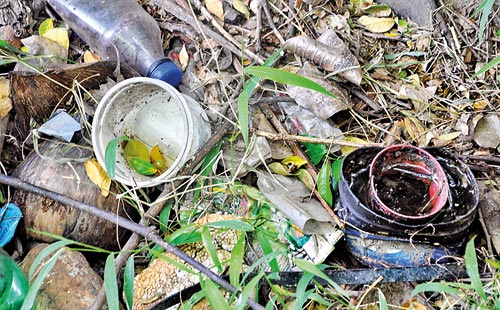News
Drop in dengue cases, but rains could raise risks
 Despite a reduction in dengue cases, the general public must be cautious about a possible spread with the rainy season, noted consultant community physician of the National Dengue Control Unit (NDCU) Dr Nimalka Pannila Hetti.
Despite a reduction in dengue cases, the general public must be cautious about a possible spread with the rainy season, noted consultant community physician of the National Dengue Control Unit (NDCU) Dr Nimalka Pannila Hetti.
“In the past two months, 400 dengue cases were reported per day across the country giving rise to concerns about the heightened spread of the disease. High case numbers seen in recent weeks have been decreasing in all areas following efficient continuous dengue vector control programmes and adequate community engagement.’’
Dr Pannila Hetti said that up till July, there have been a total of 50,574 dengue patients and 31 deaths.
The Western Province accounted for almost half of all cases in the island at 25,242 (49.9%).
The NDCU said the highest number of dengue cases in the Western Province was in the Gampaha District – 11,071 (21.9%). 10,899 (21.6%) cases were from the Colombo District and 3,272 (6.5%) from the Kalutara District.
Climate changes increase the risk of a range of endemic diseases. While risk reduction methods to obstruct individual transmission trails are beneficial, a collaborative effort to steer climate change will serve to lessen the load of endemic diseases.
Dengue preponderance has been closely associated with variations in climate. The increased rainfall during monsoons promotes vector habitat availability.
 “Compared with previous years, no such seasonality has been observed at this point in time,” stressed Dr Nalin Ariyarathna, director general of the NDCU.
“Compared with previous years, no such seasonality has been observed at this point in time,” stressed Dr Nalin Ariyarathna, director general of the NDCU.
He highlighted that many factors contribute to the enhancement of the transmission intensity of dengue.
Increasing population, global warming, and unplanned urbanisation are said to contribute to an increase in dengue.
“Many studies have demonstrated that climatic parameters play a vital role in escalating the risk of dengue transmission, determined by local ecology,” Dr Ariyarathna said.
He said that the recent launch of the national dengue surveillance system by the NDCU with involvement of many relevant sectors will allow for proactive monitoring and forecasting.
“In the absence of an effective vaccine against dengue fever, dengue vector management remains the key for preventing mosquito-borne diseases. A comprehensive programme will be launched in the Gampaha District next Saturday as it has recorded a high rate of infection which makes it the most affected district,” Dr Ariyarathna said.
“There appears to be a drop in reported cases in some provinces. Dengue prevention programmes are underway, particularly in dengue cluster areas including schools, residences, places of worship, Government and private institutions, commercial premises, building sites and deserted places across the country,” said Public Health Inspectors’ Union Secretary S I Bopitiyage.
Speaking to the Sunday Times, Government Medical Officers’ Association (GMOA) spokesman Dr Chamil Wijesinghe said there was an increasing trend that was persistent and it is a positive sign.
He said community vigilance is needed “over the following months as rain multiplies dengue breeding areas and spikes infection rates’’.
“Stagnant water in isolated areas is a leading cause of mosquito breeding in most areas of the city. The Western Provincial Council and the Sri Lanka Air Force as a collective effort, use a DJI Agras T10 drone to spray eco-friendly anti-larval agents on high-rise buildings in certain parts of Colombo where there is a high risk of dengue mosquito breeding that the Public Health Officers cannot reach. A DJI Agras 16 drone is used to locate the areas in high-risk MOH zones,” medical officer for vector borne diseases control (Western Province) Dr Yudhisteera Wedisinghe said.
In addition, a clean up operation will be done in the Colombo Municipal Council area next weekend.



In the absence of a vaccine, a constant community effort is needed to prevent Dengue vector breeding. Pix by Priyanka Samaraweera
The best way to say that you found the home of your dreams is by finding it on Hitad.lk. We have listings for apartments for sale or rent in Sri Lanka, no matter what locale you're looking for! Whether you live in Colombo, Galle, Kandy, Matara, Jaffna and more - we've got them all!

